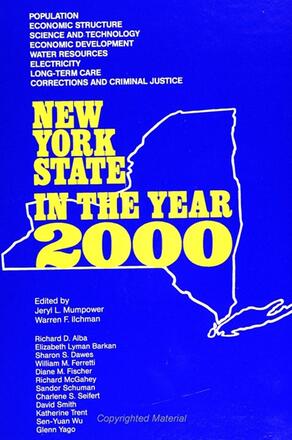
New York State in the Year 2000
Alternative formats available from:
Description
This book looks resolutely to the future by analyzing key trends likely to shape New York State as it enters the 21st century. It examines critical and emerging issues and assesses the strengths and weaknesses of present and proposed State policies. Topics covered include: population dynamics, economic structure, science and technology, economic development, water resources, electricity, long-term care, and corrections and criminal justice. New York State in the Year 2000 illustrates what the State is like now, what it will be like—given present and unchanging conditions—and what it could be like were those conditions altered. Anyone who is interested in and cares about New York State and its future will find this book informative and insightful.
Dr. Jeryl L. Mumpower is Director of New York State Project 2000 at the Rockefeller Institute of government. Dr. Warren F. Ilchman is Director of the Rockefeller Institute of Government in Albany, New York.
Reviews
"The most important feature of this book is its unprecedented scope and depth. There really is an enormous amount of reliable information about New York State which can be used resourcefully to develop a strategic plan through to the end of the century and beyond." — Morton Schoolman, Graduate School of Public Affairs, State University of New York at Albany